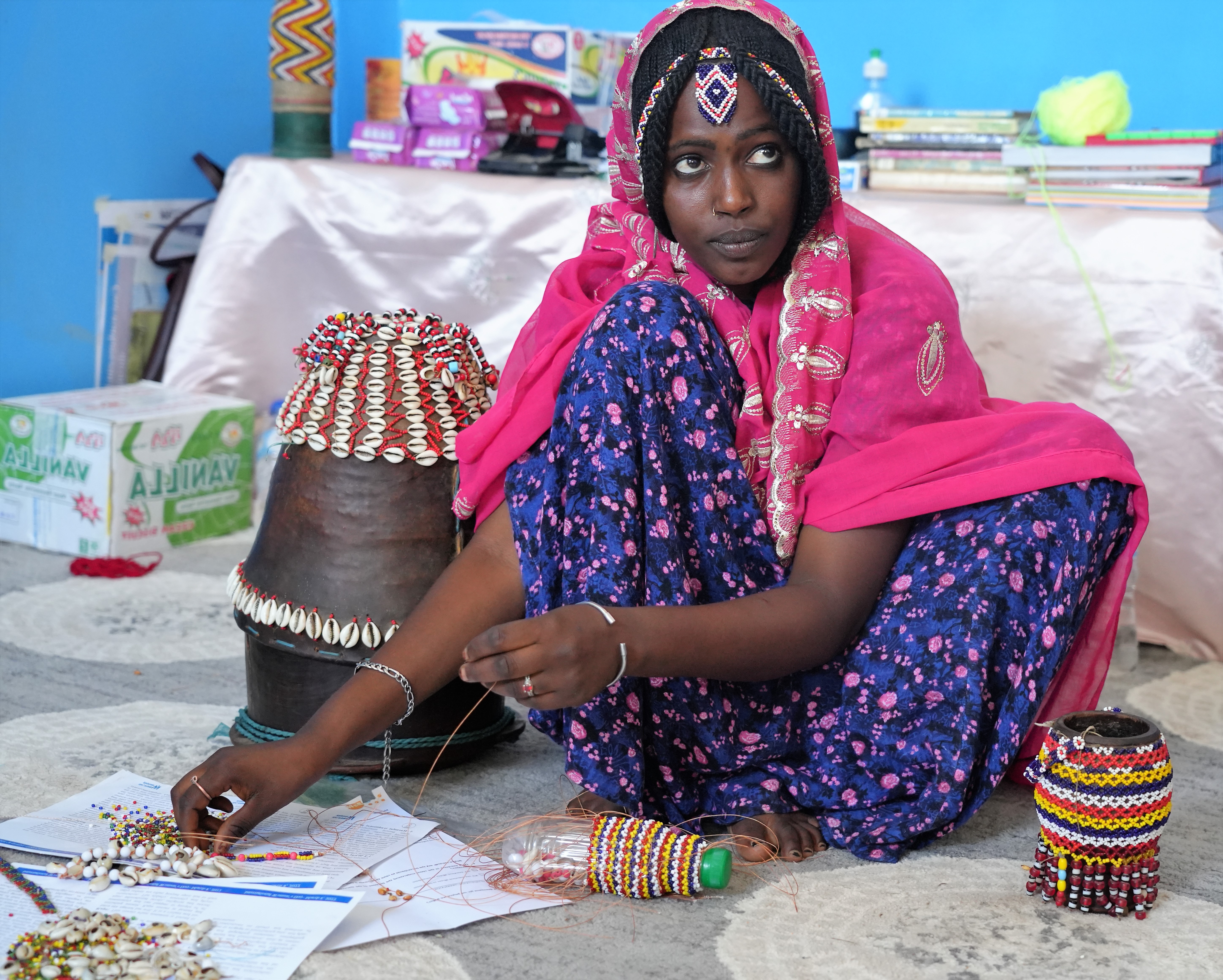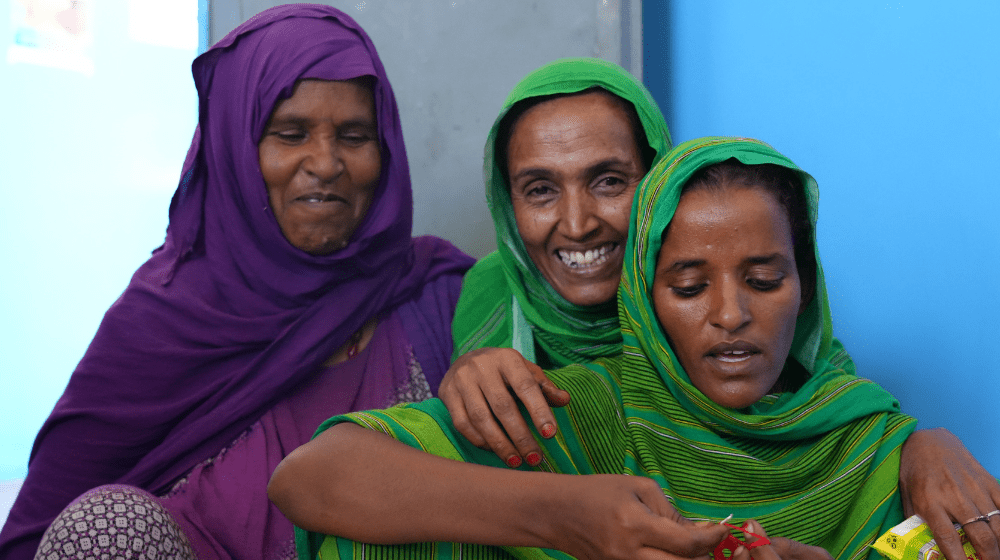In the Afar region, Chifera Woreda, women look forward to gatherings at the Women and Girls Friendly Space (WGFS). ''Most of us here are married. We discuss domestic issues and partner violence. We give each other support and advice and share experiences of safety. We are practical and focus on avoiding confrontations with our partners and creating peace at home so we can be safer. We also design safety and escape plans, discuss de-escalation tactics and what we could do in case of violence,'' said Aregash Hussien, 42, a regular at the gatherings.
About 20 women attend various sessions and meet for coffee and tea regularly. The formal sessions are guided by experts to focus on the social well-being of women with special emphasis on the prevention of gender-based violence and harmful practices.
Early marriage and FGM are common in the Afar region, making them a regular topic for sessions. Post the northern conflict that lasted three years, conversations about rape and other forms of sexual violence also became more prevalent.
''We have structured sessions weekly. The topics are selected based on the challenges of women in our areas. We use stories and examples to emphasize the negative impacts of FGM and early marriage. Women, especially mothers, play a significant role in these decisions, so we believe the WGFS can change attitudes in this direction'' says Iman Jemal, GBV response officer at the WGFS.
After sessions, the women discuss and confide in one another while having coffee or tea. The informal chat is the main attraction for the women as they find community and friendship in a space only designated for them.
They also share skills and experiences in handicrafts and decorative art, using creativity as recreation and psychological support. Some of the women are also making money out of it.
The space also provides support and resources for those who need it most. They distribute sanitary pads and integrate short-acting family planning.

A learning platform for girls
The space is a sanctuary for young girls to get support and advice. There is a regular after-school session for adolescent girls. "Our main topics are early marriage and women's empowerment. We train them on self-expression and understanding of their power and potential so that they can protect themselves from early marriage and other forms of violence. We even saved a few girls from early marriages by communicating with families and the police,'' says Hanna Abera, a GBV expert at WGFS.
Zahara Sultan, 17, regularly visits the WGFS after school and attends all sessions. She enjoys conversations and handicrafts. ''I enjoy working on jewelry and decorative art. I learned that from the women here. The discussions also provided me with information that helps me stay in school. I refused an early marriage due to this. I plan to finish school and become a leader,'' she said.
UNFPA's support to WGFS
The Chifra WGFS is one of UNFPA's 22 similar safe spaces across the country. With funding from the Government of Ireland, UNFPA initiates the establishment of the spaces and provides technical and material support. This includes renovating spaces to make them comfortable for women, distributing dignity kits, and integrating family planning services. These safe spaces also support women to access psychosocial counseling. They also provide a platform for women to share their experiences and build community.
UNFPA provides capacity building and training to the local implementing partners, which helps to ensure that the safe spaces are managed in an effective and sustainable manner. The staff at the safe spaces also help women to access additional health and legal services when needed.
Challenges for the Chifra WGFS
The WGFS is currently hosted at Chifra Primary Hospital. However, it's a temporary arrangement, which worries the experts about sustainability. ''As the hospital expands, they will ask us to move out. That is why we are working with UNFPA to secure permanent housing,'' said Iman.
The Regional Head of Disaster and Risk Management Mohamed Hussein is aware of the challenges faced by the WGFS in Chifra woreda. ''We will work with the woreda to ensure they have a permanent space. Considering what women have been through in this region with the conflict and drought, we need those spaces strengthened and sustained,'' he said.


